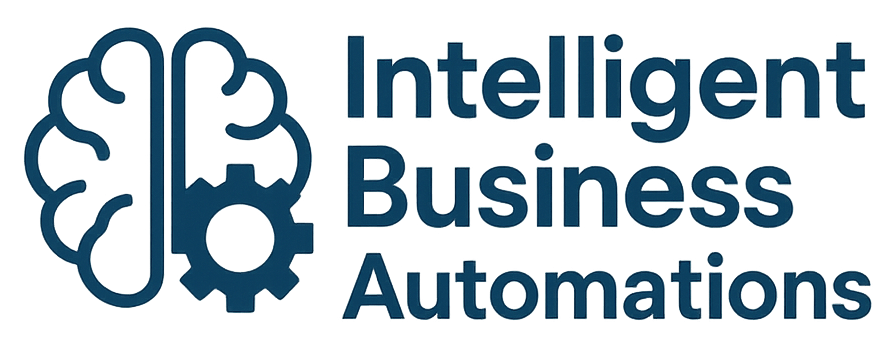AI Self-Service Knowledge Bases for Small Businesses
- What a self-service knowledge base is and how it supports customers
- Key AI features that improve searchability and recommendations
- How to structure FAQs, guides, and tutorials to increase self-service success
- How to connect your knowledge base to chatbots and live support tools
- Using analytics to spot content gaps and keep resources relevant
- Top AI knowledge base platforms built for small business workflows
What Is a Self-Service Knowledge Base?
A self-service knowledge base is an online resource center where customers can find answers, troubleshoot issues, and learn how to use your products—without needing to wait on a support agent. Think FAQs, how-to articles, video tutorials, and step-by-step guides, all available 24/7.
Why it matters for small businesses
- Reduces support costs: Fewer tickets and calls mean leaner teams can handle more.
- Faster answers: Customers don’t wait—they help themselves on their own time.
- Happier customers: Empowering users builds trust and satisfaction.
Examples include customer help centers, onboarding wikis, and searchable portals.
AI Search and Recommendation Features
Traditional keyword search engines often miss the mark—requiring users to input exact phrases to find what they need. Modern AI-powered knowledge bases fix this with smarter search and content suggestion features.
How AI makes a difference
- Understands intent: AI interprets what users mean, not just what they type.
- Smart suggestions: Dynamically recommends related articles based on behavior and past searches.
- Personalization: Highlights the most relevant answers based on user profile or interaction history.
These features reduce response times and redirect repetitive questions—freeing up your team and delighting customers.
Structuring FAQs and Guides for Maximum Utility
Even with great tech, the way you write and organize content plays a big role in whether users actually find what they need. AI systems rely on well-structured articles to return helpful results.
Smart content structure starts with:
- Clear categories and tags: Organize content into logical themes with searchable keywords.
- Readable formatting: Use headings, bullet points, and short paragraphs to aid scanning.
- Plain, actionable language: Avoid jargon—write like a helpful human.
- Visual aids: Embed screenshots, screen recordings, or diagrams when a picture truly is worth a thousand words.
You don’t need a tech team to create great content—you just need to think like your customer.
Integrating with Chatbots and Support Systems
AI self-service knowledge bases work even better when they’re connected to your other support tools like chatbots, ticketing apps, or CRMs.
Benefits of integration:
- Chatbot connections: Let bots pull answers from your knowledge base in real time.
- Escalation handoffs: Route complex questions straight to a human when needed—with context intact.
- Consistent answers: Shared databases ensure customers and reps see the same information.
Smarter systems = simpler lives. If you’re exploring how AI tools can streamline your support flow, our solutions for small businesses can point you in the right direction.
Tracking Usage and Continuously Improving
Building a knowledge base isn’t a one-and-done project. The best content evolves with your business—and your customers.
How to improve content based on real-world use:
- Usage analytics: See which questions are most viewed (and which aren’t).
- Search data: Identify what people are searching for—and fix gaps in content.
- Feedback tools: Use thumbs up/down, ratings, or comments to track helpfulness.
- Ongoing updates: Set regular check-ins to revise outdated answers and add new ones.
Looking to build your first knowledge base or refine what you have? Our coaching service can help guide your team through the process.
Recommended Knowledge Base Platforms
You don’t need an enterprise budget to launch a smart, scalable knowledge base. Here are a few AI-capable tools designed with small teams in mind:
- Notion + AI plugins: Customizable and affordable for startups or solopreneurs. Add AI integrations for search and content generation.
- HelpDocs: Clean design, built-in AI search, and smart article prompts. Made for teams who want quick setup and low maintenance.
- Intercom Articles: Seamless for businesses already using Intercom’s support suite. Delivers instant answers within your chat and support flow.
- Zendesk Guide with AI: Scales with your customer base, offering AI-powered suggestions and ticket deflection tools.
How to choose the right platform:
- Budget: Look at total cost of ownership, including storage limits and AI features.
- Ease of setup: Drag-and-drop editors and onboarding support make a big difference.
- AI readiness: Choose a tool with smart search, auto-suggestions, and content analytics built in.
- Scalability: Pick something that grows with you—not something you’ll outgrow in six months.
Conclusion
AI-powered self-service knowledge bases help small businesses deliver better support without growing headcount. They answer questions faster, reduce support costs, and create a better customer experience overall.
With artificial intelligence interpreting questions and delivering the right answers at the right time, even small support teams can feel like big ones.
And remember—you don’t need to figure out AI. That’s our job. Focus on building helpful content, choose the right tools, and keep improving along the way. That’s how small businesses create big impact.
